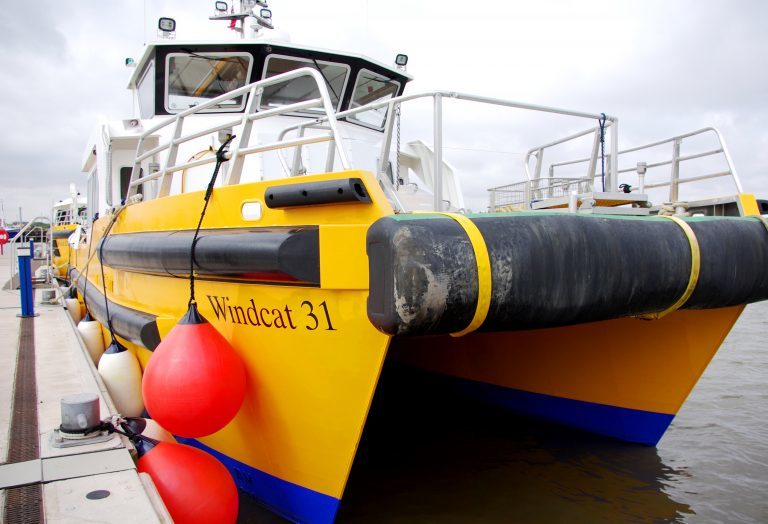
A new European study is to discover the psychological and physiological effect of choppy waters on crew being transported to offshore wind farms.
The study will look to discover whether sending out workers during turbulent sea conditions is worthwhile.
The industry claims that unscheduled operations and maintenance activities on offshore wind installations account for “almost a quarter of the lifetime cost of an offshore farm”, but siad that time is often wasted due to “failed crew transits” or worker finding themselves unable to work as a direct result of bad seas.
The Improving the Safety and Productivity of Offshore Wind Technician in Transit (SPOWTT) project, coordinated by the Offshore Renewable Energy (ORE) Catapult, will reveal how the motion of a vessel in transit during certain weather conditions affects workers’ well-being.
Pete Lloyd of Siemens Gamesa Renewable Energy said: “The safety and well-being of our technicians are of paramount importance to us, and so it’s vital that we minimise the impact of adverse weather crew transits on them as much as possible.
“This kind of innovative approach to problem solving is key to the UK Government’s Industrial and Clean Growth Strategies and will be an important tenet of the offshore wind Sector Deal currently being developed by the offshore wind industry.”
ORE Catapult said that the SPOWTT study will provide a forecasting tool, a monitoring tool and help match future assets to environmental conditions.
The collaboration involves seven partners from across Europe, including Siemens Gamesa Renewable Energy, the University of Hull, SMC Ltd, providing marine coordination services, Dutch research institutes MARIN and ECN, and BMO Offshore, a data service provider to the offshore wind industry.
The partners estimate that if, by 2020, this solution is applied across the currently installed fleet of 1,300 Siemens 3.6MW wind turbine generators, revenue could increase by £9.5million annum.
Gijs Struijk, head of maritime operations at MARIN, said: “Unique to this project is the way that operational data is used to supplement our models of vessel behaviour. Together with the University of Hull’s research on physiological and psychological factors, this project is able to achieve comprehensive and accurate modelling of the impact of every voyage.”
“MARIN is proud to be able to contribute to a safer working environment for offshore wind technicians. This decision-making tool will make the best use of state-of-the-art modelling and available data to help operators create a safer working environment.”
Recommended for you
